Overview
According to the Academy of Nutrition and Dietetics, diarrhea is one of the most commonly reported gastrointestinal complications of tube feeding. Many potential causes exist for the development of loose stools when you are on tube feeding, as well as many potential solutions. Choosing the right solution for tube feeding and diarrhea can help resolve your symptoms rather than make them worse.
Background
Enteral nutrition or tube feeding, is liquid food given through a tube into the stomach or small bowel, states the American Society for Parenteral and Enteral Nutrition (ASPEN). In 1995, Medicare and its beneficiaries spent $660 million dollars on enteral nutrition products. MedlinePlus defines diarrhea as more than three large, watery stools per day. You may also have abdominal cramps, bloating and a feeling of urgency if you experience tube feeding and diarrhea.
Potential Causes of Tube Feeding and Diarrhea
Medications that may contribute to loose stools include antibiotics, liquid medications in a sorbitol base, magnesium-containing antacids, and potassium and phosphorus supplements, states the Oley Foundation. Many drugs in liquid form have a high osmolality, or number of particles that can lead to diarrhea. Gastrointestinal infections can irritate the intestine and lead to watery stools. Formula contamination caused by improper handling and storage can also induce diarrhea, cautions the Oley Foundation.
Solutions and Prevention
Ask your doctor or pharmacist if any of your medications could contribute to loose or watery stools. Sometimes changing the form that your medication comes in can help. Use good hand washing techniques, wash all equipment with warm water and check formula expiration dates. Use one feeding bag for no more that 48 hours and hang formula for no more than eight to 12 hours. If diarrhea develops after taking antibiotics, check with your doctor before taking antidiarrheal medication.
Immediate Action
Try lowering the rate of tube feeding until diarrhea improves. Stopping completely may contribute to dehydration and electrolyte loss. Contact your doctor if you notice a large increase in diarrhea or if it lasts for more than 24 hours. You should also call your doctor if there is blood in your stool or if you experience severe abdominal pain.
Other Considerations
Try adding a soluble fiber product to your daily tube feeding regimen or switching to a fiber-containing formula to help make your stools more formed. Consider using probiotics, recognized by the National Center for Complementary and Alternative Medicine as effective in treating diarrhea. Most people can stay on standard tube feeding formulas, which are generally isotonic, lactose-free, low in fat and well tolerated, states ASPEN.
The recommendations provided in this material are not intended to replace the medical advice of a physician. Contact your healthcare professional for personal medical advice or diagnosis-related questions and treatment. If you think you have a medical emergency, call 911.
For more information, see related articles and feeding tube resources here:








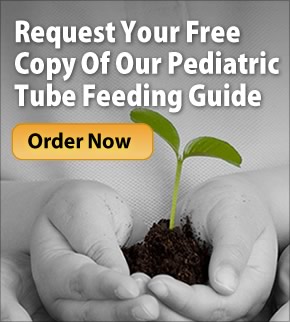








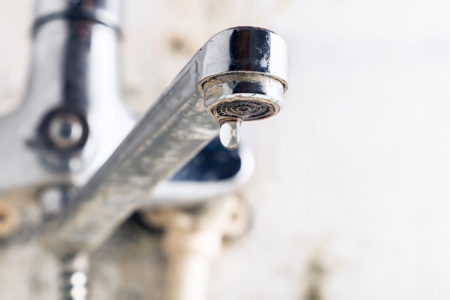

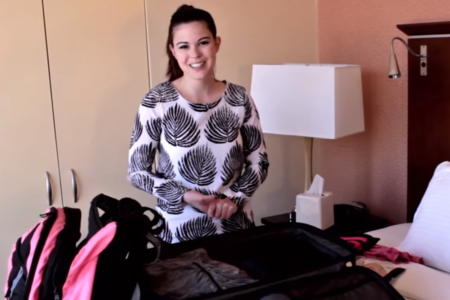



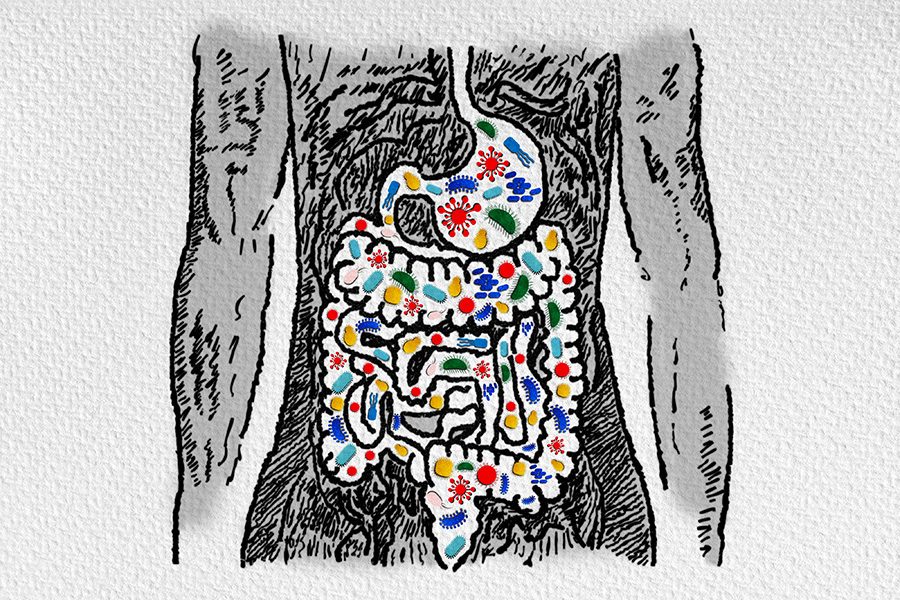

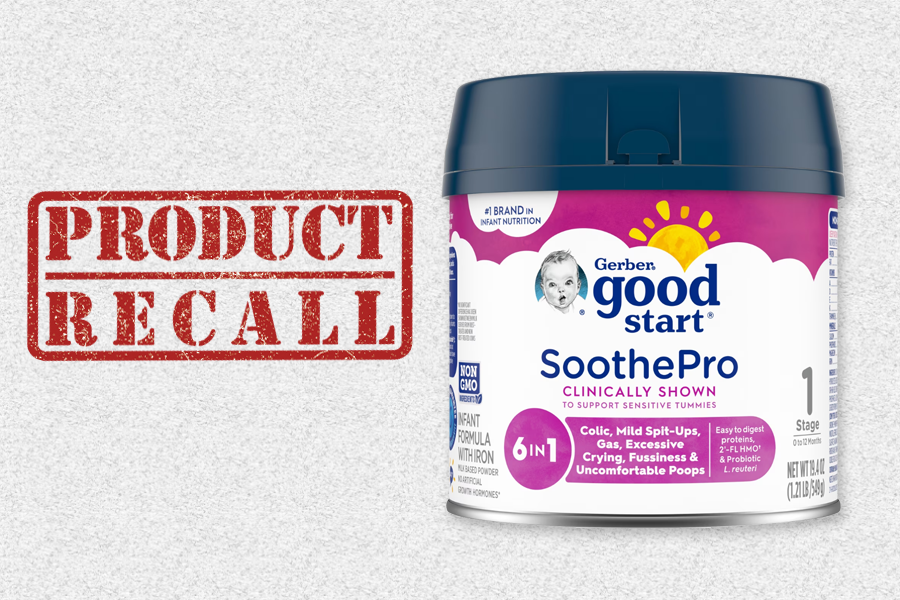



Concerning your recommendation to use probiotics in treating diarrhea while using a g-tube: I have been warned that probiotics should not be given through a stomach g-tube because they contgain live yeast spores that could get into the bloodstream and cause a systemic fungus problem.
The pharmacist at Florastor did not recommend giving Florastor through a stomach feeding tube for this reason. My husband is suffering from diarrhea after antibiotics, and his doctor wants him to take probiotics. What probiotics, then are indicated for a stomach g-tube, ones that will do him no harm. Products, such as Protonix, are supposed to be made for g-tube delivery, but the tiny beads get stuck in the tube and are useless and dangerous because they clog up the tube. Please, I need some advice in this situation. Thank you.
Hi Kathleen,
Thank you for your comment! The probiotic strain usually used for diarrhea is the bacteria, Lactobacillus. Saccharomyces boulardii is a yeast, of which Forastor is a brand. It has some compelling research behind it suggesting that it is effective in preventing recurrence of Clostridium difficile infection, commonly known as C diff. There has been at least one reported case in which a patient with a central intravenous line developed a blood infection which was attributed to cross-contamination. This means that it was likely that the powder from the capsule got on the hands of the health care professional who was handling the IV. There have been no cases of blood infection with a probiotic of any kind that was administered orally or through a feeding tube in a patient without a central intravenous line. Protonix is an antacid medication. There is a probiotic brand called Lactinex. This brand and another, Culturelle, are commonly used in feeding tubes in the hospital and long term care settings. The powder should be removed from the outer capsule, dissolved in water, administered through the feeding tube via syringe and followed by a water flush. If your husband does not have an IV line and his immune system is not compromised, there should be no contraindication to him taking S. boulardii or another type of probiotic. Lactobacillus rhamnosus GG (Culturelle) has also been effective in preventing antibiotic-associated diarrhea, especially when continued after the antibiotic course is completed. Always check with your doctor before starting any kind of supplement.
I am a health care professional, and I enjoyed the helpful information written in the article. Digestive health and Nutrition are in fact important in the overall well being and healing of patience.
I just got a feeding tube have not starting uses it yet but I was cleaning around it and was going to flush it out and it seem like it was fetus with mucus in my feeding tube is it ok to still use the tube for feeding and is this dangerous with the fetus going though.
Hi Donna, I wonder if you meant to type fecal matter? At any rate, when in doubt about any drainage from your feeding tube, contact your doctor, surgeon or nurse before use. Thank you!
Hello,
I have been waiting for an appointment from the VA for my Dad for follow up. He has a Peg now, gets diarrhea, can I use a Gastroenterologist to manage his feedings and diarrhea?
Hi Dawn,
Yes, a gastroenterologist should be able to help you with this but his primary care physician may also by able to assist. I’m happy to help you troubleshoot if you’d like to email me at rd@shieldhealthcare.com.
Thank you, Amy
My mama is fed with tube (nose). She takes Nutrison Multi Fibre 1.0 kcal/ml. Since one week she has diarrhea, lot of mucus and she pains. She even got fever Doctor gave bioflor but no change. Could you suggest me something efficient. Thanks.
Hi Chrystal, sorry your mom is having trouble. It’s hard to know what’s causing this but if it’s only been going on for a week, it may be an infection or reaction to something that has changed with her medications. If she was fine before now on her current feeding regimen, it’s probable not the formula or a nutritional issue but something going on with her gastrointestinal system. Her doctor may want to see her for a stool test or xray of her abdomen to rule out any acute medical issues.
I found this article to be extremely accurate and informative. I happened to stumble upon this article while doing research for an initiative that I Hope will implemented at the hospital where I work. Since you are very well versed in GI, would it be possible to contact you via email and pick your brain a bit? I saw your email address in a previous comment, but I’d prefer to ask permission rather than to assume it was meant for anyone to use.
Thank you!
Thank you for your feedback! You can absolutely email me at rd@shieldhealthcare.com. Thanks! Amy
I know not a lot of people do this but my dig is on a stomach feeding tube now for 9 weeks, she is doing great but has diarrhea I can nit get rid of please help me.. Teresa
Hi Teresa, sorry you are having trouble! If by dig you mean dog, your best bet would be to follow up with your veterinarian. If you meant something else, please clarify and I’m happy to help!
I provide some care for my mother who has been using primarily enteral feeding for more than 5 years. Her health has been in decline since late January rendering her 100% reliant on her tube for nutrition. She has lost 16lbs in 10 weeks, (about 13%of her total weight) is down to 3 cans of formula per day (1050 cals) and has been experiencing fecal incontinence, urgent diarrhea and as of 3 days ago, pale stools. A visit to the ER for dizziness last week resulted in numerous scans which showed nothing. The ER concluded she is suffering from malnutrition. Where and how do I help her? She is non verbal as a result of oral cancer surgery and reluctant to pursue further intervention. I am at a loss. Her ER visit, Gastroenterologist and GP do not address her nutrition. Is there a specific kind of dietician who works with tube fed elderly adults? I’m struggling!
Any guidance would be appreciated.
Hi Elle, I’m sorry you are experiencing this. Your mother’s gastroenterologist should definitely be able to address the issues related to her tube feeding tolerance and bowel problems. If you are not getting the help you need, try to see a different gastroenterologist. Most of the issues your mom is having require medical intervention. You might also ask her gastroenterologist, insurance plan or hospital case manager for a referral to a registered dietitian who can work with the doctor on her nutrition plan. Also, the company that supplies her tube feeding supplies may have a dietitian who can help.
Hello. I have read all the post and wonder if some one could help. My mom is on a PEG tube. Her stomach is always hurting when she eats. Today I got her some tylenol for her pain and we giving it to her when her stomach started hurting as I’m administrating the tylenol in her tube and then 4 hrs later she starts having bouts of diarrhea. Could the tylenol of caused this? I asked a pharmacist about it before giving it to her.Please help.
Hello Karen. Thank you for your question. We’re sorry to hear that your mom has been experiencing pain and diarrhea. We spoke with a couple of our registered dietitians, and they recommend speaking to your mother’s doctor about the pain she is having. From Eleni: “Anytime someone mentions pain, I refer them to their MD. Tube feeding should not hurt.” At that point, you can also discuss the diarrhea. We can also recommend taking a look at this article, Ask the RD: What Causes G-Tube Pain?. Best of luck, and we hope you are able to speak with a medical professional soon. -Aimee, Shield HealthCare
Most Tylenol pills should not be crushed…it can cause organ damage
Hi D. We guess you’re responding to the most recent comment about the person who was giving Tylenol to their mom. You are right, most Tylenol pills should not be crushed – although the commentor doesn’t mention how they gave their mom the Tylenol, and they mention that they spoke to a pharmacist … so perhaps they were using liquid medicine? We hope they were able to see a doctor about the pain. Thanks for the helpful reminder! -Aimee, Shield HealthCare
So my son just got a replacement for his GJ tube yesterday. I took him to the ER to get the replacement, it’s nice and clean and brand new but since this morning at 5:48 then he had a bowel movement at 845 and then 1130am then another one at 2:05pm. The rate of his feeding is only at 68ML. But the last time he had bowel movement was Monday night 1106pm prior to today due to clogging of his feeding tube. I had to take him to the ER yesterday morning to get a replacement GJ feeding tube. Could I give him something to slow it down or should I bring his feeding rate to a lower ML? He has issues with having regular bowl movements already they’re always running due to only intake of 2 Cal formula and water through tube he is on his feeding 12 hours a day. He been on his feeding since 930am but I stop it for at 220pm to see how he doing. Any suggestions?
Hi Irma. Thank you for reaching out. We are sorry to hear that your son is experiencing this. Ultimately, his doctor will know your son’s case the best and will be able to offer the best advice. Please contact the doctor’s office as soon as possible to find out what he can take or if the feeding rate should be changed.
– Sarah, Shield HealthCare
My grandmother has a feeding tube in which she has been using for a month and she’s having extreme Diarrhea at the moment. I would like to know as she has chronic gastritis could that be the cause or is there another problem ?
Hi Faysal. Thank you for your question. There are many reasons that your grandmother can be having diarrhea. It is best to contact her doctor right away as extreme diarrhea can be dangerous, especially in the elderly. Her medical team will be able to help find and address the underlying issue.
-Sarah, Shield HealthCare
My husband has had a PEG tube for over year due to an operation for Oral Cancer. He cannot take anything by mouth at all.
After the first or second feed of the day he has to rush to the toilet with diarrhoea about four times. The rest of the day he is OK. He has 200mls of Nutrison Energy seven times a day as instructed by the Dietician.
This is very draining for him making him rather scared to leave the house.
Any advice please.
Thank you.
Sue
Hi Sue. I am sorry to hear about the feeding difficulties your husband is having. Please contact his doctor/medical team as soon as possible as his feeding regimen may need to be re-assessed. Thank you for reaching out and I wish you and your husband the best. – Sarah, Shield HealthCare
Hi my mother have a peg tube for over a year and now she have diarrhea really bad as soon as she have her nutren 1.0 fiber it run right out her we have change it shy was on 1.5 I have tried everything over the counter and nothing works the doctor run test she don’t have c-diff so what can I do any suggestions will help thanks
Hi Johnnie. Thank you for reaching out with this question.
We are very sorry to hear about your mother’s discomfort after feeding. How is she taking the formula? If bolusing or using a pump at a fast rate, it would be worth trying to slow it down. Getting the same amount of formula over a longer period of time may help with her tolerance. Also, we recommend keeping in close contact with her medical team about this. Let them know if this keeps happening and ask for guidance/alternatives.
We wish you and your mother the best.
-Sarah
Bloating in lower bowel 4 hours after feed stopped on my j-tube. My bowles are usually regular but just feel swollen and bloated, have had some laxatives to help, if it can.